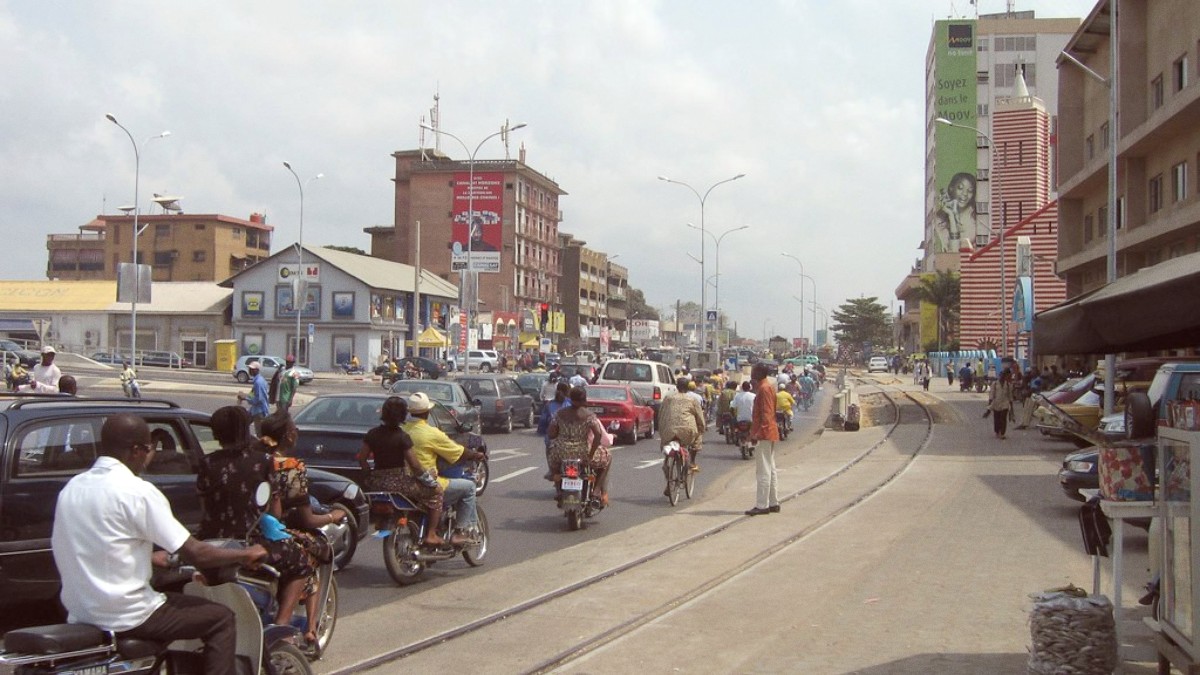
Benin
Cotonou's climate maintains consistent warmth, with average temperatures around 25-30°C (77-86°F) day and night. Nighttime temperatures seldom drop below 20°C (68°F), keeping evenings warm and balmy. High humidity marks the atmosphere throughout the year, often over 80%, which intensifies the heat sensation.
The city features two rainy seasons and two dry seasons: a long rainy season (mid-March to mid-July, heaviest in June), a short dry season (mid-July to mid-September) with clearer days, a short rainy season (mid-September to mid-November) with lighter rains, and a long dry season (mid-November to mid-March) which is generally the warmest and driest. Harmattan winds in February and March can bring dust.
Your travel dates influence the atmosphere and cost of your trip to Cotonou.
High Season (Long Dry Season: Mid-November to Mid-March) means less rainfall and lower humidity, with sunnier days for outdoor activities. Many cultural festivals occur. However, tourist numbers are higher, potentially leading to higher prices. Harmattan winds can bring dust.
Less rain, lower humidity
Sunny, ideal for outdoors; cultural festivals; easier travel.
Higher prices; Harmattan dust (Dec-Feb).
Break from heavy rains
Fewer tourists; lush green landscapes; competitive prices.
Still warm and humid; occasional showers possible.
Mid-March to Mid-July & Mid-Sept to Mid-Nov
Lowest prices for flights/hotels; fewer crowds.
Heavy rainfall disrupts plans; high humidity; increased mosquitoes.
Benin needs visas for most foreign nationals planning a visit. The e-Visa system is the most convenient and widely used method for obtaining one. Apply online through the official Beninese e-Visa portal (evisa.gouv.bj). Options include Visa Touristique for tourism and Visa d'Affaires for business. E-Visas process typically within 24-72 hours. ECOWAS nationals generally have visa-free entry.
A passport valid for at least six months beyond your planned departure date from Benin, with at least two blank pages, is a passport requirement. A recent, color digital passport photo with a plain white background, proof of onward or return travel, and accommodation confirmation (hotel booking or invitation letter) are also needed. A credit or debit card supports online fee payment. Travel insurance is highly advised.
€50 (approximately $55 USD).
€75 (approximately $80 USD).
€100 (approximately $110 USD).
E-visas typically process within 24-72 hours. Urgent applications can sometimes process instantly.
Apply at least one week before arrival for any unforeseen delays. Check the official e-Visa portal for current fees.
Managing your finances in Cotonou is straightforward with some planning. Benin offers experiences for every budget, from very economical travel to more luxurious stays.
The official currency is the West African CFA franc (XOF), pegged to the Euro (€1 = 655.957 XOF). Major currencies like USD and EUR exchange at banks, official bureaus, and larger hotels. Euros generally offer better rates. Avoid street money changers due to fraud risk.
Tipping is not mandatory but is welcomed for good service. Guidelines vary by situation.
Costs for accommodation, meals, transportation, and attractions generally fall within these ranges.
Benin has specific health considerations, especially regarding mosquito-borne diseases and food hygiene.
A valid Yellow Fever Vaccination Card is mandatory for entry. Get vaccinated at least 10 days before arrival.
Malaria is prevalent; preventative medication is strongly advised. Discuss options with your doctor.
Typhoid, Hepatitis A/B, Meningococcal, Rabies, and routine immunizations. Consult a travel health professional well in advance.
Prevention is important for a healthy trip.
Malaria: Take prescribed medication, use Insect repellent, sleep under an insecticide-Treated mosquito net, wear Long-sleeved shirts.
Diarrheal Diseases: Drink sealed bottled water, avoid ice, eat thoroughly cooked food, peel fruits. Wash hands frequently or use Hand sanitizer.
Dengue Fever, Chikungunya, Zika, and Schistosomiasis are other concerns. Heat exhaustion is also a risk; stay hydrated and seek shade.
Medical facilities in Cotonou offer limited resources, especially for serious conditions. Private clinics are better equipped but can be expensive.
Police: 112, Fire: 118, Ambulance: 117. Response times vary.
For serious emergencies, medical evacuation may be necessary. Travel insurance covering this is important.
Petty crime is common in Cotonou. Vigilance supports personal security. Violent crime is less frequent but can occur.
Cotonou faces some seasonal environmental hazards.
Cotonou is low-lying and susceptible to localized flooding during heavy rainy seasons, specifically in June. This disrupts transport and may create unsanitary conditions.
These occur during the dry season, especially February-March. Stay hydrated and avoid strenuous activity during peak heat hours to counter this.
During the dry season (December-February), Harmattan dust from the Sahara can cause respiratory issues and reduce visibility, especially for sensitive individuals.